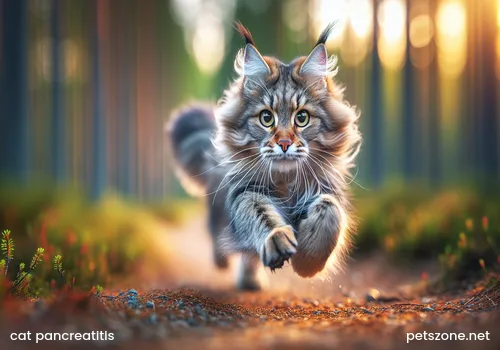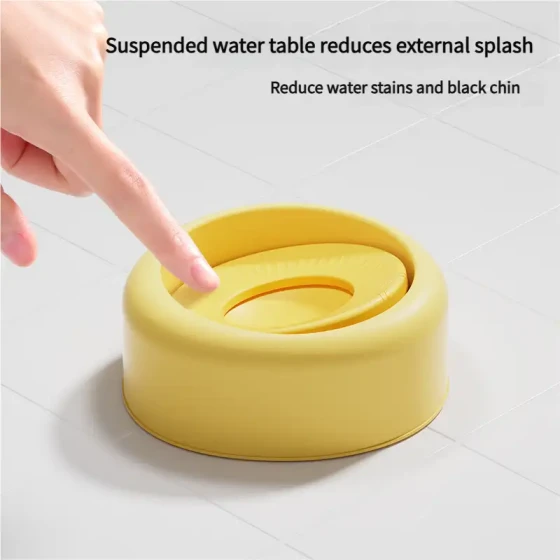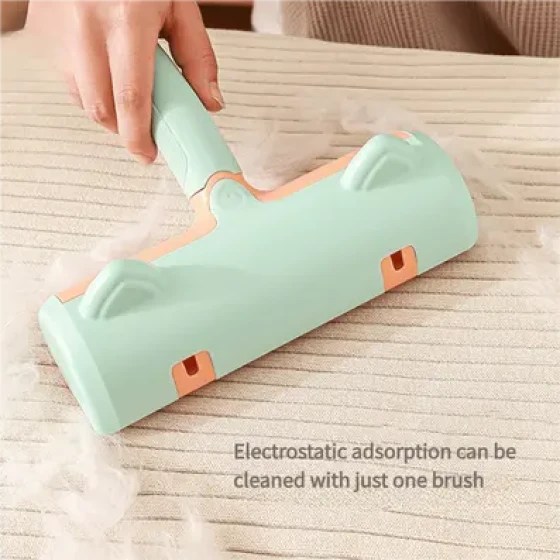Will Cats Heal Themselves if They Get Pancreatitis_Cats Pancreatitis Self-Healing Possibility Full Analysis
Cat pancreatitis usually cannot heal itself. This is a serious illness requiring timely and professional veterinary treatment. Relying on the cat’s own recovery is not only unlikely but may also worsen the condition, threatening the cat’s life.

Pancreatitis is a common but dangerous disease in cats, referring to inflammation of the pancreas. The pancreas is an important organ in the body with two main functions: secreting digestive enzymes to help digest food, and secreting hormones (such as insulin) to regulate blood sugar. When the pancreas is inflamed, the digestive enzymes it produces may mistakenly activate inside the pancreas itself, starting to “digest” the pancreas, causing pain, damage, and even systemic inflammatory responses.
Common Causes of Cat Pancreatitis
The causes of pancreatitis in cats vary widely, and sometimes no clear trigger can be found. Some possible causes include:
* Dietary factors: high-fat foods or sudden changes in diet may be triggers, although this is less common in cats than dogs but still possible.
* Trauma: abdominal impact or surgery may damage the pancreas.
* Infection: certain viruses (such as feline infectious peritonitis virus FIP), bacteria, or parasitic infections may involve the pancreas.
* Other diseases: pancreatitis may accompany other chronic diseases, such as inflammatory bowel disease (IBD), liver diseases (like fatty liver), or diabetes.
* Certain medications: some drugs may also increase the risk of pancreatitis.
Symptoms of Cat Pancreatitis
Symptoms of pancreatitis in cats vary greatly, ranging from mild discomfort to severe and critical conditions. Moreover, cats naturally hide their discomfort well, making early detection challenging. Common symptoms include:
* Depression, appetite loss, or even complete refusal to eat: this is the most common and easily noticed symptom.
* Vomiting: repeated vomiting may occur.
* Abdominal pain: cats may show unwillingness to be held, hiding, or arching their back.
* Dehydration: caused by vomiting and decreased intake of fluids.
* Abnormal body temperature: may be elevated or lowered.
* Jaundice: if inflammation affects the bile duct, it may cause yellowing of the skin, eyes, and gums.
It is noteworthy that symptoms can sometimes be atypical, such as simply showing lethargy or poor appetite, which can be mistaken for minor ailments. Therefore, if such symptoms persist, it is crucial to seek veterinary care without delay.
Why is Cat Pancreatitis Difficult to Heal on Its Own?
The essence of pancreatitis is the damage caused by the pancreas digesting its own tissue with its enzymes. Once this process starts, it is hard to stop naturally. The inflammation persists and damages worsen continuously. Without timely medical intervention to suppress inflammation, provide supportive care, and relieve pain, the condition will deteriorate further.
Waiting for the cat to heal by itself is very risky because:
* Severe pain: pancreatitis causes intense pain, causing great suffering to the cat.
* Organ damage: ongoing inflammation may cause permanent pancreatic damage affecting its enzyme and insulin secretion functions, and may also involve organs like liver and kidneys.
* Complications: severe pancreatitis may trigger systemic inflammatory response syndrome (SIRS), multi-organ failure, and can be life-threatening.
* Diagnostic complexity: diagnosing pancreatitis requires professional veterinarians using history, physical exam, blood tests (such as feline pancreas-specific lipase fPLI), imaging (such as ultrasound), and more. Owners cannot diagnose it at home.
Professional Veterinary Treatment is Key
Treatment of cat pancreatitis is mainly supportive, aiming to control inflammation, relieve pain, correct dehydration and electrolyte imbalance, and prevent complications. Common treatments include:
* Fluid therapy: replenishing fluids to correct dehydration and electrolyte imbalance, helping maintain stable circulation.
* Pain relief: using appropriate painkillers to alleviate severe pain, a critical part of treatment as pain increases pancreatic stress response.
* Anti-vomiting: controlling vomiting to reduce digestive fluid loss and make the cat feel more comfortable.
* Nutritional support: after vomiting stops, gradually resume feeding, usually with easily digestible low-fat food. For severe appetite loss, tube feeding via nasal or esophageal tube may be needed.
* Antibiotics: may be used if bacterial infection is suspected.
* Other medications: veterinarians may use other drugs to manage complications or treat underlying causes depending on the situation.
Treatment outcomes depend on the severity of the condition, presence of other diseases, and timeliness of treatment. Mild pancreatitis usually has a good prognosis if treated promptly and effectively. However, prognosis for severe pancreatitis is guarded and can be life-threatening even with active treatment.
How to Prevent or Reduce Risk?
Although some cases of pancreatitis cannot be predicted, certain measures can help reduce risk:
* Stable diet: avoid sudden food changes, choose high-quality, easily digestible cat food.
* Weight control: obesity may increase risk of pancreatitis.
* Avoid high-fat foods: avoid feeding human table food to cats, especially high-fat foods.
* Regular health checks: take the cat for regular veterinary check-ups to detect and treat potential health issues early.
* Beware of concurrent diseases: actively treat primary diseases such as IBD or diabetes in cats.
Frequently Asked Questions
- Q: How much does treatment for cat pancreatitis typically cost?
A: Treatment costs vary greatly depending on severity, treatment needed, hospitalization duration, and regional expenses. Mild outpatient care may cost several hundred to over a thousand RMB, while severe cases requiring hospitalization can cost thousands to tens of thousands RMB in a few days. - Q: Is pancreatitis contagious?
A: Pancreatitis itself is inflammation of the cat’s own organ and is not directly contagious to other cats or humans. However, if pancreatitis is caused by an infectious disease (like FIP), then the primary disease may be contagious. - Q: How long can a cat live after getting pancreatitis?
A: Lifespan depends largely on severity, timely treatment, and response to treatment. Mild pancreatitis with timely treatment usually has a good prognosis and cats can return to normal life. Severe pancreatitis can be life-threatening, requiring long-term dietary management and care, and may recur. Early diagnosis and active treatment are key to improving survival and quality of life.
Summary
In summary, cat pancreatitis is a serious disease that should not be ignored and usually does not heal on its own. If pancreatitis is suspected, definitely seek professional veterinary help immediately. Timely diagnosis and active treatment are the best ways to control the condition, reduce suffering, and improve survival. Do not hope for luck as delaying treatment can cause very serious consequences.



-560x560.webp)